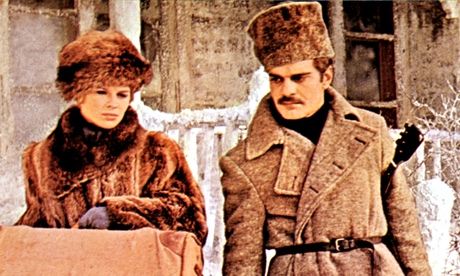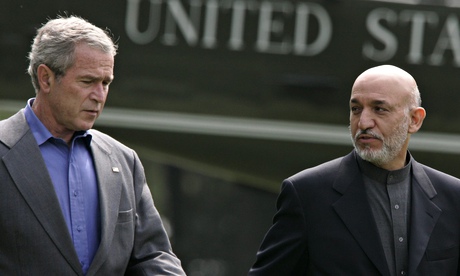Those were the days! We can tell our grandchildren about that glorious time when high culture used to matter, and the CIA and the KGB fought cold wars about it. But in the era of the worldwide web, who can take seriously the idea of smuggling books through the iron curtain? It seems so far away – you have to remind yourself that we weren't still travelling in horse-drawn buggies.
For the CIA, it was "something of a caper" to try to flood the Soviet Union and its eastern European satellites with forbidden books and periodicals, to show them freedom in action and introduce them to the idea of cultural diversity. But there was American idealism in there too. It is harder to see any redeeming aspect in the Soviet response, which was purely defensive and involved a lot of bullying of their own writers. The Soviet view was that western culture, in its late capitalist phase, was degenerate and sterile, with the practitioners of high culture alienated from a popular audience. They thought they had done better in this respect, and in one aspect of the cold war culture wars – the musical one, with Shostakovich and Prokofiev matched against Milton Babbitt and atonality – they possibly had a point.
Literature was another matter. Soviet literature was undergoing a post-Stalinist renaissance in the mid-1950s, associated with reform-minded journals such as Novy Mir, but the work that excited a Soviet public wasn't necessarily going to appeal to western readers, any more than it appealed to conservative Soviet bureaucrats. That is where the CIA and the western mass media achieved a miracle: they turned two works of Soviet literary realism, both semi-autobiographical, into international bestsellers and their authors into Nobel prize-winners. In the second case, Aleksandr Solzhenitsyn and his One Day in the Life of Ivan Denisovich, the subject was the gulag, which made the cold war relevance fairly clear, even though the work was in the "truth-telling" tradition of the Soviet thaw and had first been published in Novy Mir. But the first case, that of Boris Pasternak and Doctor Zhivago, was simply bizarre. How did a meandering epic novel by a Russian poet, essentially non-political and written in a style not much more modern than Galsworthy's Forsyte Saga, manage to sell millions of copies in the west, not to mention give birth to a major film (David Lean's 1965 version, with Omar Sharif and Julie Christie, notable for its snowy sleigh rides, fur muffs and "Lara's Theme")?
Pasternak first came to international attention in the mid-1950s, when, after failing to find a Soviet publisher for his novel, he sent it to the rich, young, eccentric, communist publisher Giangiacomo Feltrinelli, in Italy. Denounced in the Soviet Union, it received enormous publicity abroad, partly through the efforts of the CIA, and this got Pasternak in deeper trouble at home. In 1958, he was awarded the Nobel prize for literature but had to turn it down, under Soviet pressure. A Soviet hate campaign followed, in which it became clear that the fact that Pasternak was a Jew, albeit from an assimilated family of Christian converts, mattered. Rejecting the option of emigration/expulsion, he stuck it out in his dacha in Peredelkino outside Moscow, where he died in 1960 at the age of 70. Prudent Soviet writers stayed away from the funeral, but foreign correspondents were there en masse.
Pasternak was one of the silver-age Russian intellectuals who thought poetry was much more important than politics. Never a Communist party member, and with the black mark of parents and sisters who had emigrated back in 1920 against him, he nevertheless made a name for himself as a poet, became a member of the Union of Soviet Writers, and was eminent enough to be allocated one of the coveted dachas at the writers' colony at Peredelkino when it was built in the 1930s. Pasternak was notable for an almost unshakable self-esteem and a self-preoccupation so complete that it gave him a lifelong childlike quality. He wasn't particularly anti-Soviet; in fact, Stalin interested him: he would have liked to talk to him, one towering figure to another, about life, death and art. Stalin didn't have time for that, but he did recognise the artistic stature of "the cloud-dweller", as he once called Pasternak.
Pasternak's only novel tells the story of Yuri Zhivago, a doctor brought up in the Moscow intelligentsia, and his passage through the Russian revolution and its aftermath, including a love story, which fate (or the revolution) blights. It wouldn't have been an easy sell in the Soviet Union, even in the 1956 thaw, but perhaps not an impossible one either. The fatal fragment was a meditation by Zhivago on the Soviet intelligentsia of which, in the late 1920s, he found himself a member: "Dear friends, oh, how hopelessly ordinary you and the circle you represent … all are. The only live and bright thing in you is that you lived at the same time as me and knew me." That was indeed Pasternak's view of his colleagues in the Writers' Union.
Pasternak sent his novel to Novy Mir in 1956, and they turned it down. This was in contrast to the journal's response a few years later when Solzhenitsyn sent them his Ivan Denisovich and the editor waged an epic battle to get it into print. The trouble was that the Novy Mir people were reform-minded, but they were reform-minded communists who believed in the revolution. As the editors correctly pointed out: "The spirit of your novel is one of non-acceptance of the socialist revolution." His argument, as they saw it, was that the revolution had destroyed Russia's intelligentsia physically and morally, and brought nothing to the people but suffering. But "argument" is wrong for Doctor Zhivago, as Pasternak was describing a spiritual journey (his own) rather than offering a political evaluation; Novy Mir might have been more on target if they had said he treated the revolution as if it wasn't important.
Pasternak had already been approached by an Italian communist journalist to let him take the manuscript to Feltrinelli so that translation could start for an Italian publication that would follow the Soviet launch. It was a risky idea, as Soviet writers were not allowed to publish abroad, and those who had done so in the past, such as Boris Pilnyak, had got into serious trouble. That was in Stalin's time, of course, and Feltrinelli and his agent were communists, which ought to make a difference. Nevertheless, it was an act of great recklessness when Pasternak, having been turned down by Novy Mir, gave the manuscript to the Italian go‑between. Feltrinelli published it in Italian in 1957, without any prior Soviet publication and with no prospect of one. It was the beginning of a major international scandal.
The CIA had decided that books were a weapon in the cold war, and exposure to different ideas would change communist societies. With generous funding for cultural promotion (most of it necessarily clandestine or through front organisations), the CIA became "one of the world's largest grant-making institutions", rivalling the Ford, Rockefeller and Carnegie foundations. A project for sending books into the Soviet Union and eastern Europe was launched in April 1956. At first, the CIA was thinking in terms of modern western classics in Russian translation (James Joyce's A Portrait of the Artist as a Young Man; George Orwell's Animal Farm), along with Russian émigré Vladimir Nabokov's Pnin. But then British intelligence sent a microfilm of Doctor Zhivago (Pasternak was recklessly generous in giving out copies to visiting foreigners), and Pasternak's novel became the focus of the campaign. As Peter Finn and Petra Couvée write, books were carried by "émigrés, priests, athletes, students, businessmen, tourists, soldiers, musicians and diplomats … sent to Russian prisoners of war in Afghanistan, foisted on Russian truck drivers in Iran, and offered to Russian sailors in the Canary Islands", as well as "being pressed into the hands of visitors to the Vatican Pavilion in Brussels and the world youth festival in Vienna".
The Soviet reaction was outrage. It had been a decision of Khrushchev's Politburo not to publish this novel by a "bourgeois individualist", moreover a Jew, whose work was marked by "estrangement from Soviet life". The KGB had known about his contact with Feltrinelli from the beginning, and had made great efforts to prevent the Italian publication. Pravda denounced Pasternak; so did his colleagues in the Writers' Union – almost none of them said a word in his defence. Ordinary people read that a writer who lived in luxury on the people's money had betrayed his country for a handful of silver, and wrote in to express their indignation. Pasternak got abusive letters. One, purporting to come from Judas, said: "I only betrayed Jesus, but you – you betrayed the whole of Russia." Thugs threw stones at his dacha windows. His mistress, Olga Ivinskaya, who had served a gulag term in the late 1940s, acted as his business agent and found herself simultaneously a conduit to foreign journalists and the KGB. (After his death, she would be sentenced to eight years for foreign currency offences, which she had indeed committed, mainly on Pasternak's behalf.)
Some years later, after his removal from office in 1964 gave him more time, Khrushchev read Doctor Zhivago for the first time, in a samizdat edition supplied by his son (and perhaps, more distantly, by the CIA). "We shouldn't have banned it," he said. "I should have read it myself. There's nothing anti-Soviet in it." That about sums it up. But the kind of Soviet stupidity that led to its banning was what made the whole CIA caper possible. One can see why the CIA – which, according to the authors of this book, is now admitting involvement for the first time, and gave them generous research access – might feel inclined to boast a little. As cold war operations go, this was one of the good ones: relatively little collateral damage; support for literature; international fame for the main protagonist, who thought his work deserved it; and, for the Soviet intelligentsia, a perhaps salutary lesson that, thaw or not, the old Stalinist traditions of scapegoating and collective persecution had still to be overcome.
• To order The Zhivago Affair for £15.49 with free UK p&p call Guardian book service on 0330 333 6846 or go to guardianbookshop.co.uk.











